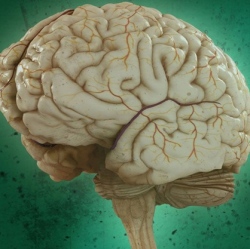
A test that combines thinking and movement can detect risk for developing Alzheimer’s disease in a person before there are behavioural signs. Health Professor Lauren Sergio and PhD candidate Kara Hawkins asked the participants to complete increasingly demanding visual-spatial and cognitive-motor tasks.
The test aimed at detecting the tendency for Alzheimer’s in those who were having cognitive difficulty even though they were not showing outward signs of the disease. "We included a task which involved moving a computer mouse in the opposite direction of a visual target on the screen, requiring the person’s brain to think before and during their hand movements," says Sergio in the School of Kinesiology & Health Science. "This is where we found the most pronounced difference between those with mild cognitive impairment (MCI) and family history group and the two control groups."
Hawkins adds, "We know that really well-learned, stereotyped motor behaviours are preserved until very late in Alzheimer’s disease." These include routine movements, such as walking. The disruption in communication will be evident when movements require the person to think about what it is they are trying to do. For the test, the participants were divided into three groups, those diagnosed with MCI or had a family history of Alzheimer’s disease, and two control groups, young adults and older adults, without a family history of the disease.
The study, Visuomotor Impairments in Older Adults at Increased Alzheimer’s Disease Risk, published in the Journal of Alzheimer’s Disease, found that 81.8 per cent of the participants that had a family history of Alzheimer’s disease and those with MCI displayed difficulties on the most cognitively demanding visual motor task.
